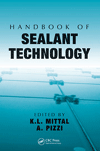Henkel Partners in SYMPA Project to Unlock 3D Printing Potential for Final Automotive Parts
According to Henkel, the German and Austrian project consortium aims to develop new materials, printing methodologies, and post-processing technologies for durable stereolithography (SLA) products using digital light processing (DLP) with a focus on automotive applications.

Henkel is partnering in an additive manufacturing research and development project called SYMPA, which is sponsored by the German Federal Ministry of Education and Research (BMBF) and the Federal Ministry Republic of Austria Transport, Innovation and Technology (BMVIT). According to Henkel, the German and Austrian project consortium aims to develop new materials, printing methodologies, and post-processing technologies for durable stereolithography (SLA) products using digital light processing (DLP) with a focus on automotive applications. SYMPA was launched at the end of 2018 and involves five partners bringing different expertise along the entire value chain of the SLA technology.
The project partners believe that the SLA technology has the potential to enable the production of customized parts and products specifically designed for customer needs, especially in automotive. Thus, SYMPA aims to overcome some of the weaknesses of current SLA materials, including as low mechanical properties, low durability, and low UV stability. The innovation objectives include the development of a new photosensitive polymer with increased long-term thermal and mechanical properties, the fiber reinforcement of the polymer, and surface modification technologies to further enhance the environmental resistance of products. All developed technologies will reportedly be demonstrated based on real automotive parts considering the requirements on industrial production processes.
SYMPA is coordinated by the Institute of Aircraft Design (IFB) of the University of Stuttgart and involves partners across the entire value chain of the SLA technology, including material specialists, machine producers, and research institutes:
- Henkel AG & Co. KGaA has developed novel high-performance photopolymers with improved mechanical and thermal durability for the SLA technology.
- The Institute of Aircraft Design (IFB) brings a background in lightweight construction and composite applications, including fiber-reinforced SLA materials for increased mechanical properties and fatigue limit.
- Rapid Shape GmbH offers high-speed open 3D printing systems that can be adopted with different process extensions to meet various material or customer requirements and environmental conditions.
- Joanneum Research and INOCON Technologie GmbH are specialists for the development and application of plasma technology for coating and activation (e.g., deposition, post-processing, and surface modification for better mechanical and environmental resistance, controlled wettability, and electric conductivity of polymers).
- cirp GmbH, a 3D printing service provider, enables technology demonstrations on real automotive structures and improved design processes of SLA components.
For more information, visit www.henkel.com.
Looking for a reprint of this article?
From high-res PDFs to custom plaques, order your copy today!








